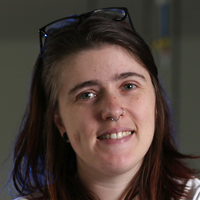Fast Facts
Location
Commencing
- Townsville: January, September
- Cairns: January, September
Fees
$8,220.00+
+estimated annual Commonwealth Supported Fee for a full-time study load. Please note this estimate is variable and subject to fluctuation depending on choice of elective subjects.
Plus Student Services and Amenities fee
Fee deferral and scholarships available if eligible
Currently displaying fees for 2025, which are subject to change in following years.
Duration
5 years full-time
Entry Requirements
ATAR 70
Recommended Knowledge
English (Units 3/4,C) and Mathematical Methods (Units 3/4,C)
QTAC Codes
- 314071
- 324071
Course detail
In your Engineering (Honours) course, experience industry-based teaching and learn from leading Engineering specialists. Build a thorough understanding of engineering fundamentals in your first year with theoretical and practical learning. You will study a specialised major, with honours-level content integrated throughout.
Choose from five different Engineering majors to suit your interests. Participate in 12 weeks of industry-based practical placement — you may even be paid for your work. In your final year, you will complete a major engineering project and thesis.
In your Information Technology degree, combine an in-depth basis of computing theory with practical knowledge and skills in software engineering, multimedia, databases and networking. Gain industry experience through internships with local businesses and organisations.
Students who are based in Townsville and have completed at least one year of their degree are eligible to apply for an Australian Public Service Academy Campus position. With opportunities in the Digital and Data spheres, you can align your studies to part-time work, that may translate into a full-time job offer upon graduation. Explore the APS Data and Digital Programs page for more information.
Become a world-class engineer and information technology professional. Experience the benefits of a joint degree and graduate with a broad skill set that is highly sought-after in the local and global economy.
View the Handbook for a detailed overview of available subjects and majors.
Additional information
Study Bachelor of Engineering with Honours Bachelor of Information Technology at JCU
If you are an ambitious student who wants to keep your options open, you should consider taking one of JCU’s joint degrees. The dynamic combination of engineering and information technology is offered as a joint degree program with a five-year duration on a full-time basis (or part-time equivalent). It is offered at two JCU campuses — Townsville and Cairns — with start dates of February and July for Townsville and February only for Cairns.
The beauty of being able to study engineering and information technology in Queensland means that graduates will have a broad, world-class skillset that addresses the changing nature of industry demands. Technology and the requirements for engineering can move very fast in the modern world, and graduates will need to keep themselves relevant to attract the very best positions.
How is the Bachelor of Engineering and Information Technology Structured?
Within the Engineering part of your joint Bachelor of Engineering with Honours and Bachelor of Information Technology, you will embark on study aligned with industry standards of engineering taught by industry professionals. The first year will see students develop a thorough understanding of the fundamentals of the discipline with inputs of theory and practicals. In the second year, students can study one of five specialised majors with honours-level material embedded into the syllabus. The choice of engineering major is yours — chemical, civil, mechanical, electric and electronic, or electronic systems and IoT. There is a 12-week placement within an engineering environment to get hands-on experience from industry veterans. The final year sees students write their thesis and complete one major practical project.
The information technology side of your joint engineering and information technology degree with JCU in Queensland will combine theory with practical applications in software engineering, networking, databases and multimedia. Students will benefit from real-life industry experience through internships within the sector. More information on the majors available for the Bachelor of Engineering with Honours are available in the Handbook on the main course page.
Having both an engineering degree and an information technology degree will set you apart when it comes to competition for employment. This is becoming a highly desirable double degree program, which will allow graduates opportunities within their home countries and overseas.
Requirements to Study Bachelor of Engineering with Honours Bachelor of Information Technology at JCU
There is a comprehensive list of requirements for eligibility to be accepted into this course on the main course page under “Inherent requirements”. JCU welcomes both local and international students onto the programs if they can fulfil all necessary requirements for the course. The university can also offer alternative pathways if a student cannot necessarily fulfil the requirements stated.
Graduates have found success in a wide range of well-paid, professional careers after studying engineering and information technology at JCU. Read testimonials from JCU’s current students and alumni. Make yourself stand out from the crowd with JCU’s joint degrees. Visit the main course page now.
Hide additional information
Inherent requirements
Inherent requirements are the identified abilities, attributes, skills, and behaviours that must be demonstrated, during the learning experience, to successfully complete a course. These abilities, attributes, skills, and behaviours preserve the academic integrity of the University’s learning, assessment,and accreditation processes, and where applicable, meet the standards of a profession. For more information please review the inherent requirements for the Bachelor of Engineering (Honours) - Bachelor of Information Technology.
Majors
As well as studying Information Technology subjects you can choose from five different Engineering majors. The electronic systems and internet of things major is only available at the Cairns campus while all other majors are only available at the Townsville campus.
Chemical Engineering
Learn how to create new products from raw materials using principles of engineering and sustainability. Gain an in-depth understanding of how chemistry, physics, mathematics and design techniques can be combined to solve some of the world’s most challenging problems. Your skills in chemical engineering can lead you to a diverse career in industries such as water and wastewater treatment, food manufacturing, energy production and minerals processing.
Civil Engineering
Benefit from JCU’s expert lecturers and explore various civil engineering disciplines such as structural, hydraulic, geotechnical, transport and environmental engineering. Develop the skills required to assess the environmental impact of large projects and understand how to build community engagement. JCU graduates have a thorough understanding of how to make cities better places to live.
Electrical and Electronic Engineering
Learn how to design and maintain electrical energy infrastructure through the application of the electrical principles. You will integrate theory with practice and visit telecommunications companies, power utilities and mines. Build a comprehensive knowledge of electrical materials, circuit theory, single phase and three phase power system modelling and signal processing.
Explore Electrical Engineering
Electronic Systems and Internet of Things (IoT) Engineering
Develop sensor technologies, analyse big data and design smart technology that relates to various industries. Work with cloud computing and wireless communication utilising a state-of-the-art Internet of Things research lab. Become innovative technology leaders, accessing world-class lecturers and their strong industry partnerships.
Explore Internet of Things Engineering
Mechanical Engineering
Understand the principles of mechanics and thermodynamics to analyse, design, manufacture and maintain machines across almost all industries. Learn the foundations of thermofluid mechanics and the dynamics of machine elements. Through experiential learning, apply your understanding of heat exchange, momentum and strength of materials to design machines.
The Handbook provides detail about the subjects you can study within each major.
Honours
An Honours degree supports entry into a Higher Degree by Research. High-achieving graduates of this course can enrol in this extra year and further develop critical thinking skills through completion of a research project and thesis. Refer to the Handbook for eligibility information.
Combining Engineering and IT qualifications give JCU graduates a wide range of employment and career opportunities.
Graduates pursue careers in various areas including electronics and communications technologies, energy resources, internet of things, data science, electricity supply, construction, consulting, defence agencies, and telecommunications.
You could find employment as a chemical engineer, civil engineer, electrical engineer, electronic engineer, mechanical engineer, software engineer, IT specialist, or transport engineering specialist.
Graduates may be eligible for membership with the following organisations:
Entry score threshold
These are the lowest adjusted scores we made an offer to in Semester 1, 2024. Entry scores are based on the most recent Semester 1 intake and are updated in June each year. Meeting the threshold doesn't guarantee admission.
ATAR/Selection Rank: 70.00
Entry score range
This table shows the range of entry scores for recent secondary students offered a place in the Bachelor of Engineering (Honours) - Bachelor of Information Technology for Semester 1, 2024. The table includes offers deferred to Semester 1, 2024 which may have been assessed using the entry score threshold of an earlier year.
JCU Townsville
Without adjustments | With adjustments* | |
|---|---|---|
Highest | <5 | <5 |
Median | <5 | <5 |
Lowest | <5 | <5 |
JCU Cairns
Without adjustments | With adjustments* | |
|---|---|---|
Highest | <5 | <5 |
Median | <5 | <5 |
Lowest | <5 | <5 |
Notes:
<5 – indicates less than 5 OP/ATAR-based offers made.
* Refer to Adjustment Factors
Find out more about who you might study with by viewing this course’s student profile.
Adjustment factors
James Cook University applies bonus ranks under the Regional Preference Scheme and QTAC’s Educational Access Scheme (EAS). Learn more about JCU’s adjustment factors.
Estimated annual Commonwealth Supported fee: $AUD8,220.00
A variety of Scholarships are available to suit different student types.
JCU Prep provides a pathway into this course. Enrolling in this flexible program will enable you to meet entry requirements including subject pre-requisites and ATARs. Introductory academic subjects are also available to prepare you for tertiary study.
*Excludes entry into the Bachelor of Advanced Science, Bachelor of Dental Surgery, Bachelor of Laws, Bachelor of Marine Science, Bachelor of Medicine, Bachelor of Surgery, Bachelor of Nursing Science – Bachelor of Midwifery, Bachelor of Pharmacy (Honours), Bachelor of Physiotherapy, and Bachelor of Veterinary Science (Honours).
Note the course QTAC code for the location you've chosen. You'll need to enter it as part of your QTAC application.
Application dates vary between courses, whether they're delivered in semester, trimester or carousel study modes. View our Application due dates page for more information.
ATAR score is indicative only. Entry scores will be finalised in the major offer round.
Real stories
-

Student
Alan Liang
Bachelor of Engineering (Honours) - Bachelor of Information Technology
JCU Engineering and I.T. are super approachable when it comes to pursuing interesting real-world projects. I was able to accomplish one of my career aspirations while studying - developing systems that make a change to the real world.
-
Student
Jessica Grimes
Bachelor of Engineering (Honours) - Bachelor of Information Technology
I believe that the IoT industry is evolving. It is bringing innovative approaches to real-world problems, while making a big impact on our quality of life. Studying Electronic Systems and Internet of Things at JCU has enabled me to be join the next generation of innovators in an advancing industry.
-

Alumni
Luke Donnet
Bachelor of Engineering (Honours) - Bachelor of Information Technology
A Bachelor of Engineering and IT at JCU equipped me with valuable skills for today’s technologically focused society. I was able to develop a supportive network of JCU staff and peers, as well as crossover skills from both disciplines that are complimentary, e.g. software development and automatic control systems.
-

Lecturer
Dr Mostafa Rahimi Azghadi
Senior Lecturer, Electrical and Electronic Engineering
The Bachelor of Engineering (Honours) prepares students for their field specific engineering duties, while adding the Bachelor of Information Technology sharpens skills and gives extra ability to speak the language of technology. Double degree graduates are more competitive because they bring more skills to the job
-

Employer
Jim Greatorex
GHD
Approximately 75% of our professional staff in North Queensland have studied engineering at JCU. GHD continues to prioritise students that have studied locally as the quality of education and resilience of character that local graduates bring to our business is exceptional.
